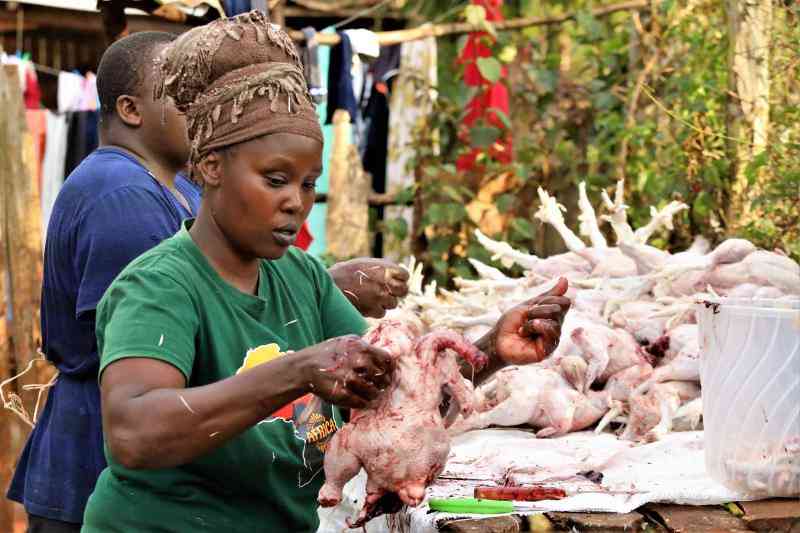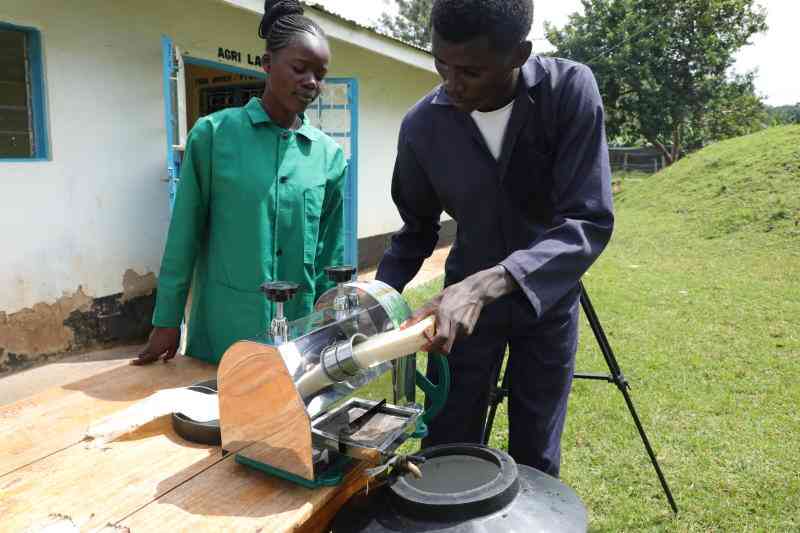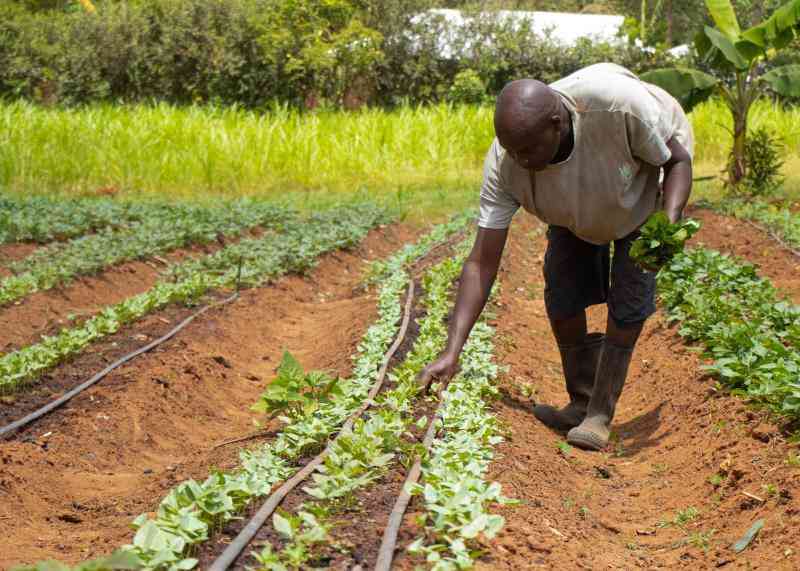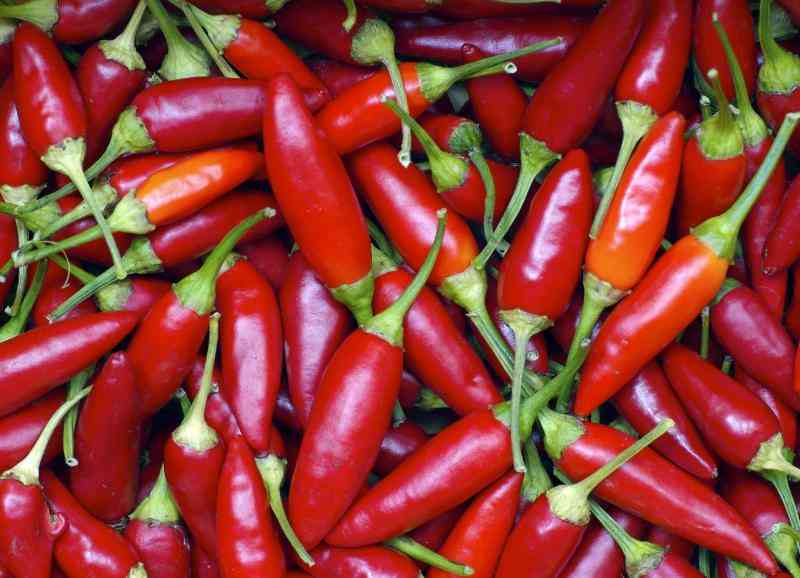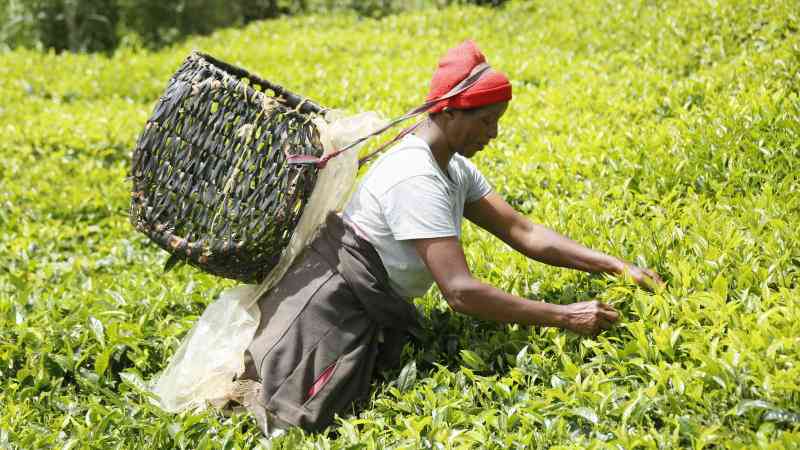Tasty times ahead for rice farmers in Mwea
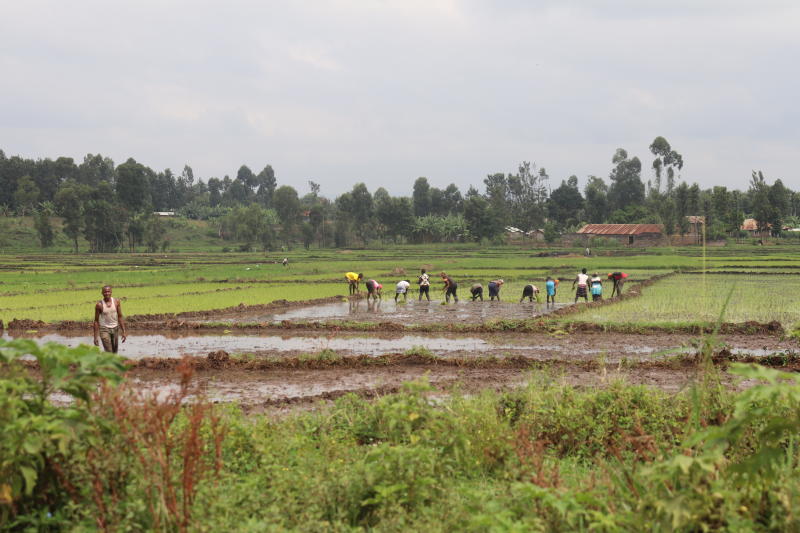
“A wise man once said, every dog has its day.” This is the current case for rice farmers in Mwea who have recorded a bumper harvest and are expecting an equally good pay.
Rice farmers within the Mwea Irrigation Scheme in Kirinyaga County look forward to a boom after they selling their produce at Sh85 per kilo, an improved price announced by President Uhuru Kenyatta last month.
In compliance with the President’s directive, the Kenya National Trading Corporation (KNTC) is buying paddy rice at the new price, a huge relief to farmers considering brokers are offering around Sh60 per kilo.
The government is buying the grain through the Mwea Rice Growers Multipurpose Co-operative Society (MRGCS). President Kenyatta had earlier announced that the rice should be delivered to government institutions.
Only the society members have benefited from the improved prices while non-members are crying foul after being locked out. They were informed that they should register first to be members but the registration is hampered by storage challenges.
Farmer is upbeat
The society’s Chief Executive Joseph Maina confirmed that marketing was going on as planned and as per the presidential directive. He also refuted claims that the government had not released money to buy rice from the growers.
He said more than 100,000 bags of paddy worth Sh600 million had been delivered to the society’s stores and expressed confidence that all current existing stock will be bought. While on a tour of Mwea last month, Agriculture Cabinet Secretary Peter Munya said the programme will benefit farmers by them getting increased value from selling their rice and for consumers having access to unadulterated rice.
Though farmers are yet to be paid for the rice delivered, they are expectant that payment will be effected this month as promised.
Zachary Gakono who delivered 27 bags of rice which is 100kgs is upbeat that his earnings will higher than in previous years. At a price of Sh85 per kilog, Gakono looks forward to pocketing Sh229,500 when payment is done. Previously, when he sold rice to the National Cereals and Produce Board at Sh64 he would have earned Sh172,800.
Middlemen still a pain
Farmers and experts say the cost of production of an acre of Pishori rice averages Sh55,000 and optimally produces 25 bags of Pishori which amounts to 2,500kgs.
With a kilo fetching Sh85, from an acre a farmer is set to make Sh157,500 profit according to experts.
“We laud the government for this decision as it will ensure farmers reap generously from their labour. Many farmers who are society members took their rice to the society as they will paid earlier (March) compared to other times when they are paid around July after the society has sold the rice,” Gakono said.
Gakono who farms the popular pishori aromatic rice at an acre farm in Ndorome village recently harvested the ratoon crop and delivered four bags to the society. He still has six more bags that he plans to deliver next week after it has dried fully. Farmers urged the government to establish buying centres in various locations, pointing out that some were unable to transport the commodity to the central buying point and ended up selling to middlemen.
Demand for rice
The good tidings for the farmers in the 26,000 acre irrigation scheme comes at a time of bumper harvest last year, which was enabled by sufficient water supply due to the heavy rains that pounded the country.
Estimates by the Mwea Irrigation Water Users Association (MIWUA) put the figure of harvested rice at about 600,000 bags.
This is at an estimated production of 22 bags of Pishori aromatic rice per acre, plus the harvest from farmers outside the scheme who are locally known as jua kali.
Despite the excitement of MRGCS members, non-members, traders and millers are grappling with marketing challenges as the supply of rice, which is the third staple crop after maize and wheat, has far outstripped demand.
They say the uncontrolled importation of cheap rice, mainly from Pakistan, is worsening the situation. MIWUA chairman Morris Mutugi appealed to the government to set up a revolving fund that buys the rice from the growers at the time of harvesting, so that they do not sell their produce to brokers.
“MIWUA brings together all the rice farmers in the scheme since they all use irrigation water, but not all of them have joined the cooperative. It would be discriminatory if the farmers outside the cooperatives do not benefit yet the cost of production is the same,” he says.
Want to get latest farming tips and videos?
Join Us
Share this article on social
 The Standard Group Plc is a multi-media organization
with investments in media platforms spanning newspaper print operations,
television, radio broadcasting, digital and online services. The Standard Group
is recognized as a leading multi-media house in Kenya with a key influence in
matters of national and international interest.
The Standard Group Plc is a multi-media organization
with investments in media platforms spanning newspaper print operations,
television, radio broadcasting, digital and online services. The Standard Group
is recognized as a leading multi-media house in Kenya with a key influence in
matters of national and international interest.
 The Standard Group Plc is a multi-media organization
with investments in media platforms spanning newspaper print operations,
television, radio broadcasting, digital and online services. The Standard Group
is recognized as a leading multi-media house in Kenya with a key influence in
matters of national and international interest.
The Standard Group Plc is a multi-media organization
with investments in media platforms spanning newspaper print operations,
television, radio broadcasting, digital and online services. The Standard Group
is recognized as a leading multi-media house in Kenya with a key influence in
matters of national and international interest.


